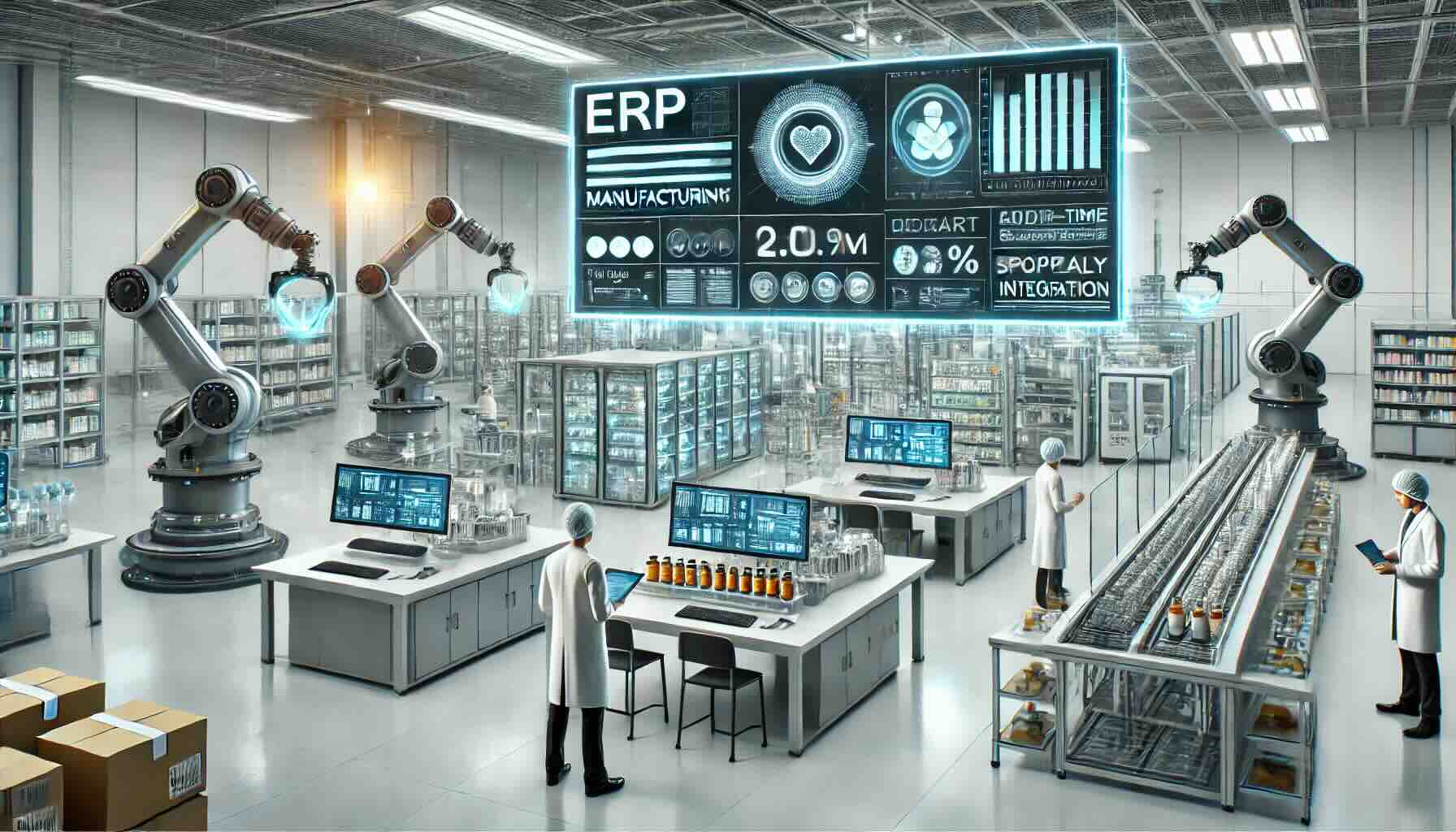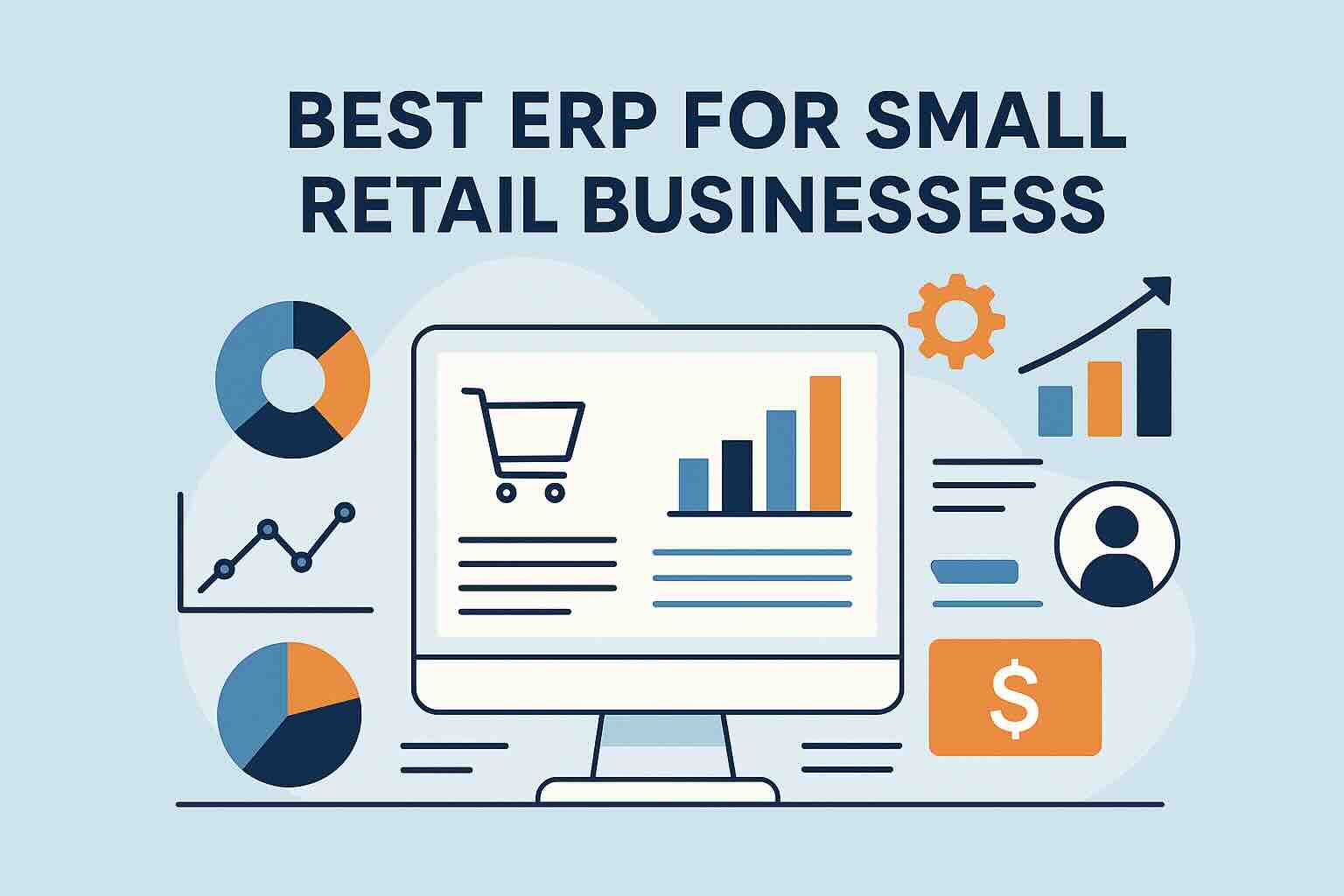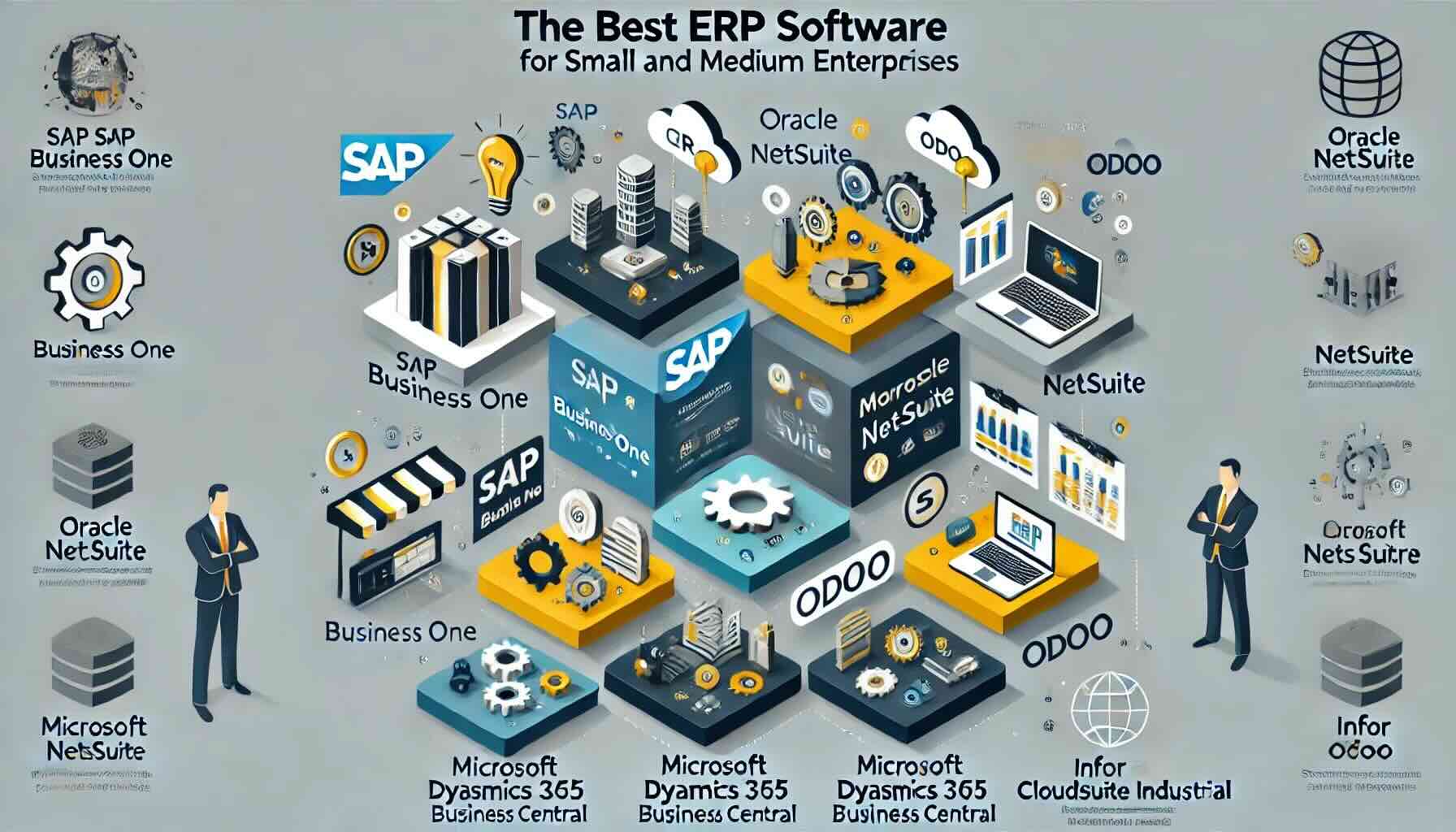Which ERP Software is Best for Pharmaceutical Businesses?

The pharmaceutical industry operates in a highly regulated and competitive environment. Companies must comply with stringent government regulations, manage complex supply chains, and ensure high product quality. To streamline operations and maintain compliance, many pharmaceutical companies turn to Enterprise Resource Planning (ERP) software. But with various options available, selecting the ERP software best for pharmaceuticals can be challenging.
In this article, we will explore the key features of an ideal pharmaceutical ERP, compare the top solutions, and help you decide which one suits your business needs.
Key Features of ERP Software for Pharmaceutical Companies
When choosing ERP software for a pharmaceutical business, companies must consider functionalities tailored to the industry’s needs. Below are the most critical features:
1. Regulatory Compliance Management
Pharmaceutical companies must comply with FDA (21 CFR Part 11), EMA, WHO, and GMP regulations. An effective ERP system should offer built-in compliance features, electronic signatures, and audit trails to meet regulatory standards.
2. Batch and Lot Tracking
Managing batch records and tracking lots from production to distribution is essential for maintaining product safety and quality. A robust ERP should facilitate batch tracking and serialization.
3. Quality Control and Assurance
ERP systems should include real-time quality checks during production, ensuring that products meet industry standards. Features such as automated quality testing and deviation tracking are crucial.
4. Supply Chain and Inventory Management
Pharmaceutical businesses require precise inventory management to prevent overstocking or shortages. The ideal ERP should support real-time stock tracking, expiry date monitoring, and supplier management.
5. Formulation and Recipe Management
Pharmaceutical companies must maintain accurate formulation records for drug production. A suitable ERP should allow recipe management, ingredient tracking, and batch adjustments.
6. Traceability and Recall Management
A recall can be detrimental to a pharmaceutical company. An ERP with end-to-end traceability allows businesses to quickly locate defective batches, ensuring a swift recall process.
7. Financial and Costing Management
Pharmaceutical manufacturing involves high costs for raw materials, R&D, and regulatory compliance. ERP software should provide costing analytics, financial reporting, and budget control.
8. Integration with Laboratory Information Management Systems (LIMS)
A seamless ERP-LIMS integration helps streamline laboratory operations, ensuring accurate sample testing and data management.
Top ERP Software for Pharmaceutical Businesses
SAP S/4HANA
SAP S/4HANA is one of the most powerful ERP solutions for large pharmaceutical enterprises. It offers advanced compliance management, end-to-end supply chain visibility, and automated quality control. With real-time batch tracking and serialization, this ERP ensures full traceability. However, SAP S/4HANA can be expensive and complex, making it better suited for large-scale operations. To find out more about SAP S/4HANA you can visit this link.
Oracle NetSuite
Oracle NetSuite is a cloud-based ERP that caters to mid-sized pharmaceutical businesses. It provides automated batch tracking, recall management, and regulatory compliance tools. The system also features real-time inventory tracking and cost-effective pricing models, making it a great option for companies looking for scalability. To find out more about NetSuite you can visit this link.
Microsoft Dynamics 365
Microsoft Dynamics 365 is a flexible ERP solution that integrates AI, analytics, and cloud capabilities. It offers regulatory compliance tracking, integrated supply chain control, quality management tools, and AI-driven financial insights. This ERP is an excellent choice for companies already using Microsoft products and seeking a seamless digital transformation. To find out more about Microsoft you can visit this link.
Infor CloudSuite Pharma
Infor CloudSuite Pharma is designed specifically for pharmaceutical and biotech companies. It comes with pre-configured compliance features for FDA, GMP, and ISO standards, along with advanced batch management, traceability, and predictive analytics for demand planning. Its cloud-based nature makes it highly scalable and adaptable. To find out more about Infor you can visit this link.
Sage X3
Sage X3 is a cost-effective ERP designed for small to mid-sized pharmaceutical firms. It includes inventory and warehouse management, traceability, recall tracking, and compliance with global regulations. It also supports multi-site manufacturing, making it a great option for growing businesses. To find out more about Sage you can visit this link.
Epicor ERP
Epicor ERP is ideal for pharmaceutical contract manufacturers (CMOs). It offers regulatory compliance tools, integrated quality control, production planning, and real-time analytics. While highly adaptable, Epicor ERP requires proper customization to maximize its benefits. To find out more about Epicor you can visit this link.
Choosing the Best ERP for Your Pharmaceutical Business
Selecting the best ERP software for pharmaceuticals depends on several factors, including company size, budget, and operational requirements.
- For large pharmaceutical enterprises, SAP S/4HANA is the most comprehensive option with its advanced compliance and automation capabilities.
- For mid-sized businesses, Oracle NetSuite provides a cost-effective and scalable cloud-based solution.
- For companies already using Microsoft products, Microsoft Dynamics 365 offers seamless integration and AI-powered insights.
- For pharmaceutical manufacturers looking for industry-specific ERP, Infor CloudSuite Pharma is a strong contender.
- For small to mid-sized firms, Sage X3 offers an affordable yet powerful ERP with traceability and compliance features.
- For contract manufacturers (CMOs), Epicor ERP provides flexibility, regulatory compliance, and quality control tools.
Final Thoughts
Choosing the right ERP for your pharmaceutical business requires careful evaluation of your company’s needs. While SAP S/4HANA and Oracle NetSuite dominate the industry for large enterprises, Infor CloudSuite Pharma and Sage X3 provide tailored solutions for small to mid-sized businesses.
Ultimately, the best ERP software for pharmaceuticals should ensure compliance, quality control, supply chain visibility, and cost management. Before making a decision, consider free demos, user reviews, and scalability options to find the best fit for your pharmaceutical business.
Find the Perfect ERP in Minutes
Choosing the right ERP can transform your business. With our AI-powered Compare ERP tool, you can quickly explore and compare solutions tailored to your needs. Get a personalized recommendation in less than five minutes. Our advanced engine analyzes millions of data points across 100+ ERP solutions, delivering your top three picks based on your business priorities. Best of all, it’s completely free. Take the first step toward streamlining operations and boosting productivity, start comparing today! By carefully evaluating your requirements and conducting thorough vendor assessments, you can identify the ERP software best for Pharmaceuticals that will not only streamline your processes but also position your company for future success.









